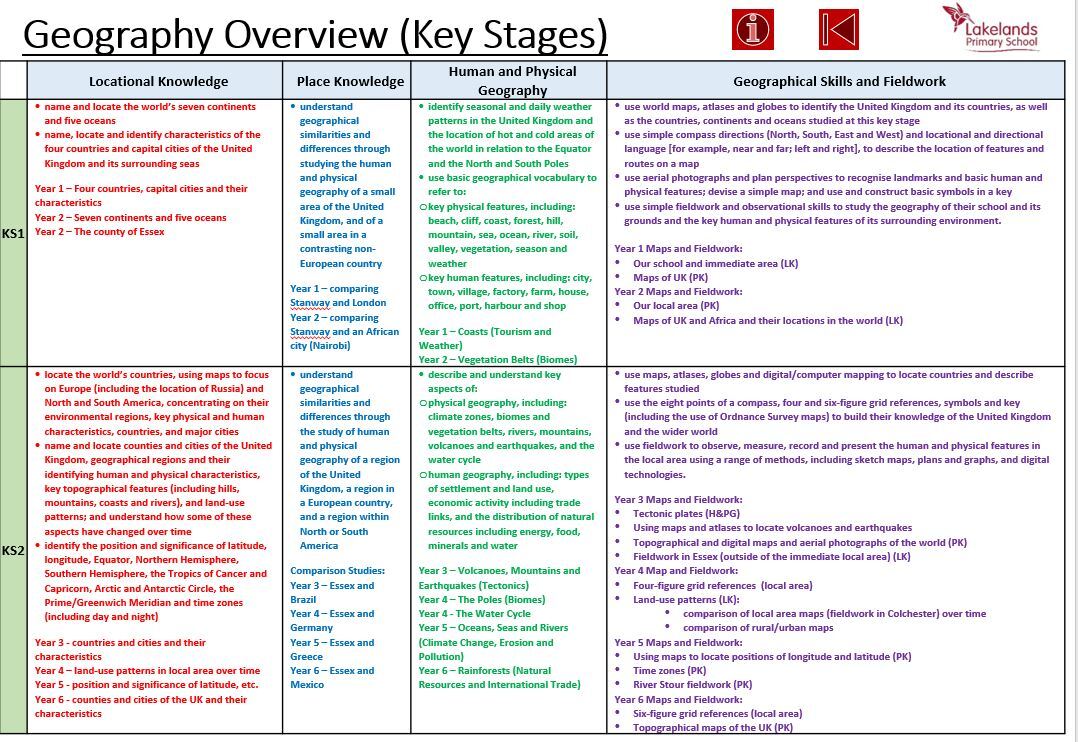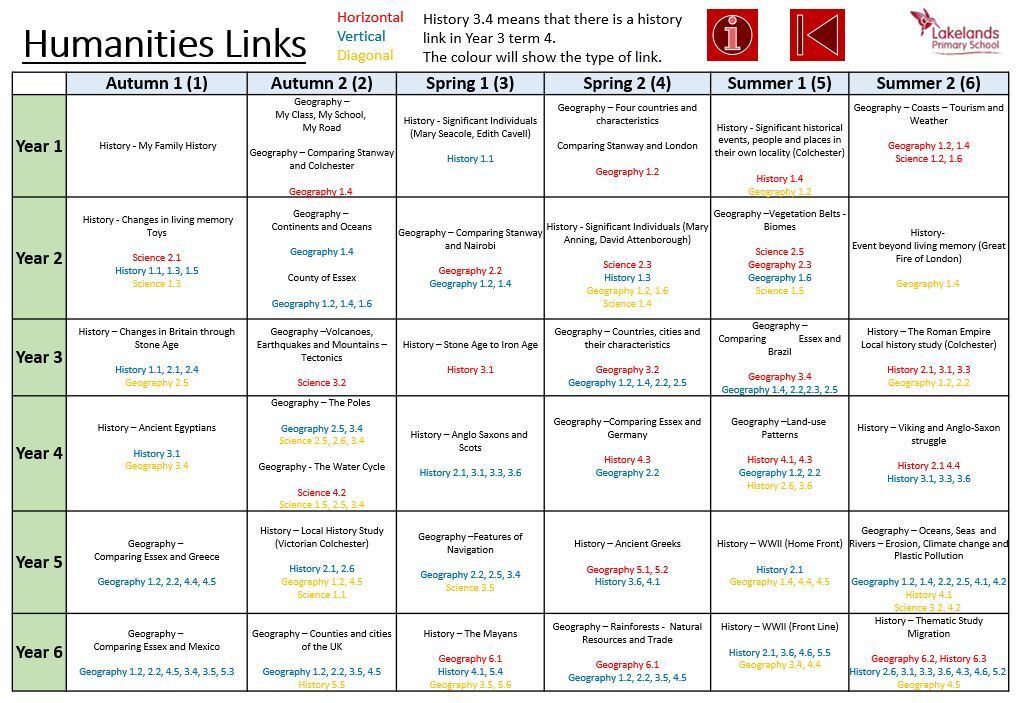Geography
At Lakelands Primary School, we teach our pupils (from Year 1) discrete subjects. This means that we teach pupils what it means to be geographers. Pupils will understand that in Geography, we learn about the world, how it is made up and how we can look after it.
"You can travel the seas, poles and deserts and see nothing. To really understand the world you need to get under the skin of the people and places. In other words, learn about geography. I can't imagine a subject more relevant in schools. We'd all be lost without it."
Michael Palin
Geography Curriculum Overview

Geographical Knowledge and Skills Coverage
All units of learning in our Geography curriculum are designed to cover the following key areas:
- Locational Knowledge:
- Place Knowledge
- Human and Physical Geography
- Geographical Skills and Fieldwork
Across the school, we teach Geography to help pupils acquire and develop a repertoire of skills and knowledge so that they increase their understanding of how geographers work.
The following core concepts underpin the teaching of Geography:
- Investigating places
- Investigating patterns
- Communicating geographically by using appropriate geographical vocabulary.
We use these to support teacher knowledge and improve lessons:
- Knowledge organisers
- Skills progression through adapting the Essentials Curriculum
How is geography taught?
Geographical concepts are planned and articulated in our half-termly planners and help pupils understand the knowledge taught. We plan a coherent curriculum to ensure that geographical knowledge is built upon. Each unit of learning has been mapped purposefully with authentic connections based on prior learning or act as building blocks for future units. For example, pupils learn about the physical geography of Greece (in a discrete unit of learning in Geography). They learn about the importance of peninsulas, islands and mountains. This is so that when they learn about Ancient Greece at a later date in History, they are aware of how the Greeks were able to use their seafaring skills and mountainous regions to expand their empire, whilst defending it at the same time.
Each lesson starts with a 'Let's Recap' section which enables pupils to recap on prior knowledge, and ends with a cumulative knowledge quiz to support pupils to remember significant facts. We also use Knowledge Organisers to support pupils to retrieve and learn significant facts (see below).
Enrichment Opportunities in Geography
There are various ways in which we enrich the pupils' geographical knowledge and skills beyond individual Geography lessons:
- Trips and visits, including Tower of London and the coast (when learning about tourism and the weather in Year 1)
- The design of the Lakelands Curriculum means that pupils will have geographical links to other areas of learning (especially Science and History).
- Sustainability awareness
- Assemblies - some examples of these can be found at the bottom of this page.
Geography links with other curriculum areas
In EYFS, the foundations are laid so that pupils are prepared for the Geography curriculum in Year 1. Pupils learn about places and habitats around the world, through books such as Augustus and his Smile. Activities are also closely linked with the Early Learning Goal of Understanding the World (People, Culture and Communities).
In the rest of the school, the units of learning for Geography have been carefully positioned so that they either reinforce prior learning across the curriculum (e.g. in History or Science) or act as foundation / building block for learning to built on at a later stage.

Knowledge Organisers
For our Knowledge Organisers, please see below.
Geography Year 1 - Geographical Skills and Fieldwork - My Class, My School, My Road
Geography Year 1 - Locational Knowledge - The United Kingdom
Geography Year 1 and Year 2 - Place Knowledge - Stanway
Geography Year 1 - Place Knowledge - London
Geography Year 1 - Human and Physical Geography - Coasts, Tourism and Weather
Geography Year 2 - Locational Knowledge - Continents and Oceans
Geography Year 2 - Locational Knowledge - County of Essex
Geography Year 2 - Place Knowledge - Nairobi
Geography Year 2 - Human and Physical Geography - Vegetation Belts and Biomes
Geography Year 3 - Locational Knowledge - Countries and Cities (and their characteristics)
Geography Year 3 - Place Knowledge - Comparing Essex to a region in South America (Brazil)
Geography Year 3 - Human and Physical Geography - Volcanoes, Mountains and Earthquakes (Tectonics)

